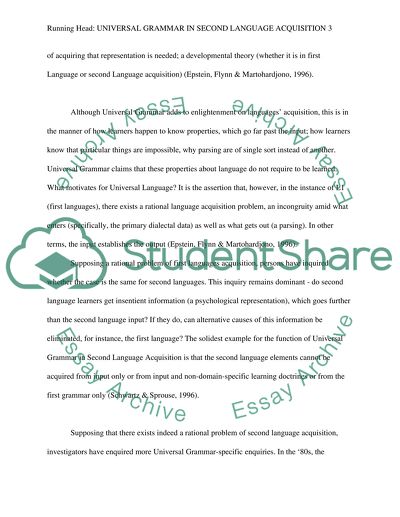Cite this document
(“Universal Grammar in Second Language Acquisition Research Paper”, n.d.)
Universal Grammar in Second Language Acquisition Research Paper. Retrieved from https://studentshare.org/education/1478309-universal-grammar-in-second-language-acquisition
Universal Grammar in Second Language Acquisition Research Paper. Retrieved from https://studentshare.org/education/1478309-universal-grammar-in-second-language-acquisition
(Universal Grammar in Second Language Acquisition Research Paper)
Universal Grammar in Second Language Acquisition Research Paper. https://studentshare.org/education/1478309-universal-grammar-in-second-language-acquisition.
Universal Grammar in Second Language Acquisition Research Paper. https://studentshare.org/education/1478309-universal-grammar-in-second-language-acquisition.
“Universal Grammar in Second Language Acquisition Research Paper”, n.d. https://studentshare.org/education/1478309-universal-grammar-in-second-language-acquisition.


